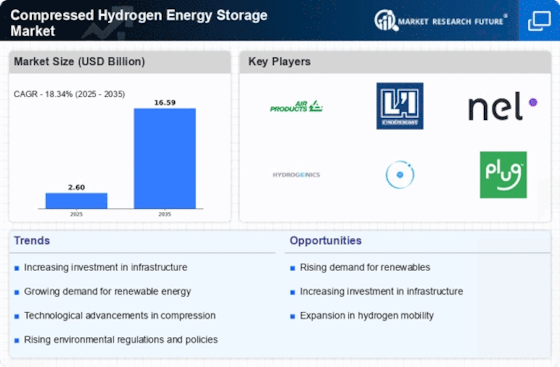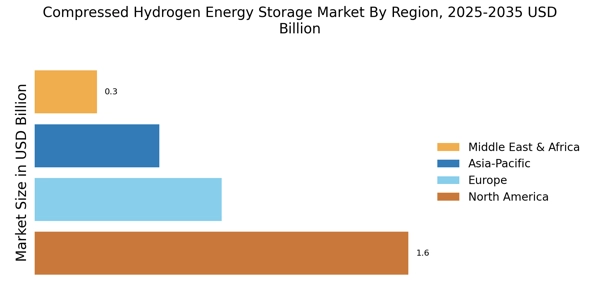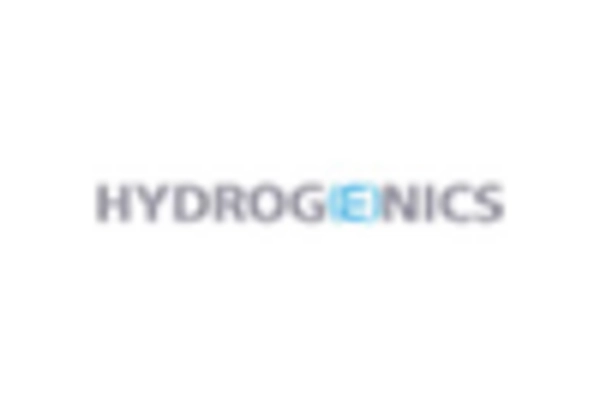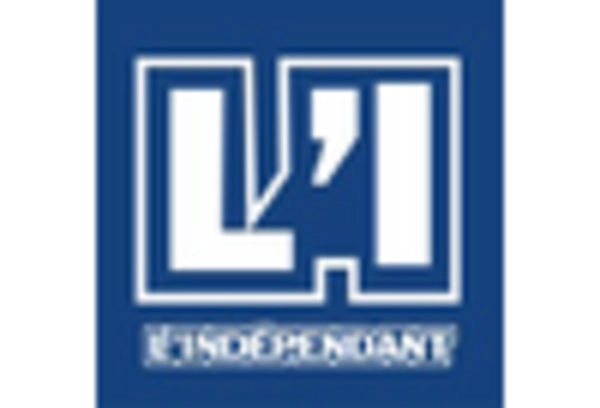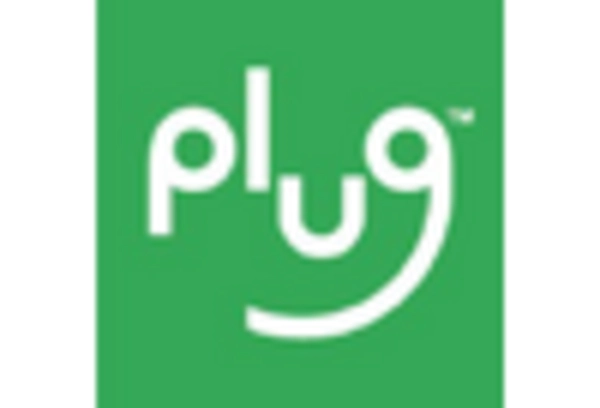Government Initiatives and Support
Government initiatives and support play a crucial role in fostering the growth of the Compressed Hydrogen Energy Storage Market. Various countries have implemented policies aimed at promoting hydrogen as a key component of their energy strategies. For instance, funding programs and subsidies for research and development in hydrogen technologies are becoming increasingly common. The U.S. Department of Energy has allocated substantial resources to advance hydrogen storage technologies, which could potentially lead to breakthroughs in efficiency and cost-effectiveness. Such governmental backing not only stimulates innovation but also encourages private sector participation, thereby accelerating the adoption of compressed hydrogen energy storage solutions.
Integration with Renewable Energy Sources
The integration with renewable energy sources is a significant driver for the Compressed Hydrogen Energy Storage Market. As the share of renewables in the energy mix continues to grow, the need for effective energy storage solutions becomes increasingly critical. Hydrogen can serve as a means to store excess energy generated from renewable sources, such as wind and solar, during peak production times. This stored hydrogen can then be utilized when energy demand exceeds supply. Reports suggest that the potential for hydrogen storage could enhance the efficiency of renewable energy systems by up to 40%. Consequently, the synergy between hydrogen storage and renewable energy is likely to propel the growth of the Compressed Hydrogen Energy Storage Market.
Rising Industrial Applications of Hydrogen
The rising industrial applications of hydrogen are driving the expansion of the Compressed Hydrogen Energy Storage Market. Industries such as steel manufacturing, chemical production, and refining are increasingly adopting hydrogen as a feedstock and energy source. The World Steel Association has reported that hydrogen could potentially reduce carbon emissions in steel production by up to 80%. This growing industrial reliance on hydrogen is likely to create a robust demand for efficient storage solutions, thereby bolstering the market. As industries seek to decarbonize their operations, the need for reliable compressed hydrogen energy storage systems will become even more pronounced.
Increasing Demand for Clean Energy Solutions
The rising demand for clean energy solutions is a pivotal driver for the Compressed Hydrogen Energy Storage Market. As nations strive to meet stringent environmental regulations and reduce greenhouse gas emissions, hydrogen emerges as a viable alternative to fossil fuels. The International Energy Agency indicates that hydrogen could account for up to 18% of the global energy demand by 2050. This shift towards cleaner energy sources is likely to propel investments in hydrogen technologies, including compressed hydrogen storage systems. Furthermore, the transition to hydrogen-based energy systems is expected to create new market opportunities, thereby enhancing the growth trajectory of the Compressed Hydrogen Energy Storage Market.
Technological Innovations in Storage Solutions
Technological innovations in storage solutions are significantly influencing the Compressed Hydrogen Energy Storage Market. Advances in materials science and engineering have led to the development of more efficient and safer storage systems. For example, the emergence of high-strength composite materials has improved the durability and pressure resistance of storage tanks. According to recent studies, the efficiency of hydrogen storage systems has improved by approximately 30% over the past decade. These innovations not only enhance the performance of compressed hydrogen storage but also reduce costs, making it a more attractive option for various applications, including transportation and grid energy storage.


